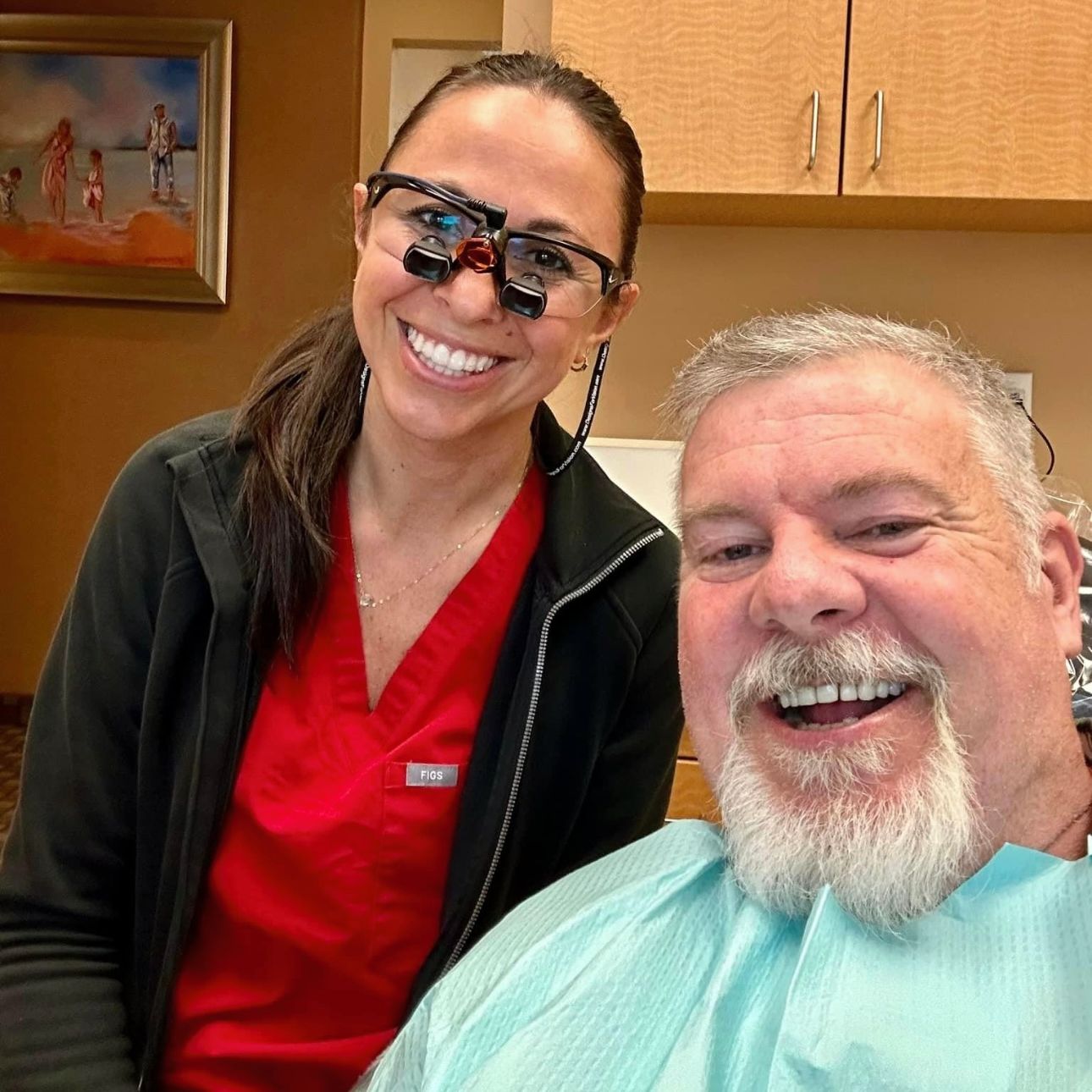

An Advanced Laser Treatment to Save Failing Implants
When patients come to Holmdel Periodontics & Implant Dentistry with symptoms of failing dental implants — loose implants, gum irritation or discharge at the implant site — Dr. Aldredge uses an advanced laser procedure called the LAPIP™ protocol to restore stability and save the implant.
LAPIP (Laser-Assisted Peri-Implantitis Protocol) was created to treat peri-implantitis, a condition created by a bacterial infection between the implant surface and gum and bone tissue. Similar to periodontitis, peri-implantitis destroys bone tissue supporting the implant. And just as periodontitis can cause tooth loss, peri-implantitis left untreated eventually leads the loss of the dental implant.
How Does Lapip Save Implants?
Just as Dr. Aldredge uses a dental laser to treat periodontal disease, he used the LAPIP procedure to treat peri-implantitis.
Dr. Aldredge uses the focused dental laser beam to reach where bacteria has infected the area around the implant, without cutting the gums. The dental laser vaporizes infected tissue without damaging healthy tissue nearby, and without disturbing the implant.
The dental laser stimulates natural gum and bone regrowth. The new bone attaches to the implant, once again securing it in place. The regenerated gums cover the implant as originally intended.
With stability restored, the dental implant will once again provide a strong foundation for a fully functioning crown, bridge or denture.

No Cutting, No Grafting, No Suturing
The LAPIP laser-assisted procedure is minimally invasive compared with conventional surgery. Because there is no cutting and no sutures, LAPIP patients experience less swelling and less discomfort during and after treatment. Because there is no damage at all to healthy tissue, the LAPIP technique has a faster healing time.
We’re pleased to report that LAPIP patients usually require only an over-the-counter pain reliever following their procedure.
Why Do Dental Implants Fail?
Dental implants can fail for a number of reasons, from improper placement of the implant to poor dental hygiene. It is vital to remember that dental implants must be cared for in the same way as natural teeth, with daily brushing, flossing and routine visits so we can be sure they’re healthy.
Common Causes of Peri-Implantitis
- Previous periodontal disease
- Poor oral hygiene
- Smoking
- Poor implant placement
Peri-Implantitis Symptoms
- Red, tender gums around the implants
- Painful swelling
- Bleeding when brushing
- Change in gum color
- Discharge at the implant site
- Visible implant
- Loose implant

Patients are pleasantly surprised with the ease of the LAPIP procedure. Having peri-implantitis treated protects your investment in implants, and your oral and overall health.
Dr. Aldredge has received specialized training to become a certified LAPIP clinician.
Dr. Aldredge is one of the few periodontal surgeons in the area who is fully certified in the use of the Nd:YAG laser and who is permitted to offer the LAPIP procedure to treat peri-implantitis.

Trust Dr. Aldredge and Holmdel Periodontics & Implant Dentistry to save your dental implant with the non-invasive, faster healing, reduced discomfort LAPIP protocol. No referral necessary!



